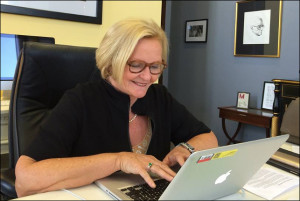By Jim Ellis
May 11, 2017 — Though West Virginia Sen. Joe Manchin (D) purports to be in strong political position for his impending 2018 re-election campaign, he is beginning to draw a cluster of Republican opponents.
At the beginning of the week, two-term US Rep. Evan Jenkins (R-Huntington) declared his intention to run for the Senate and launched his effort with a video announcement that takes Sen. Manchin to task (see video above).
Next week, Rep. David McKinley (R-Wheeling) said he will announce his intentions with regard to the Senate race, though up until a few days ago he had not even been mentioned as a potential candidate. The congressman is still not expected to enter the race, however. On the other hand, it is a virtual certainty that two-term GOP Attorney General Patrick Morrisey will soon make official his budding US Senate candidacy.

